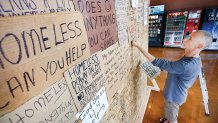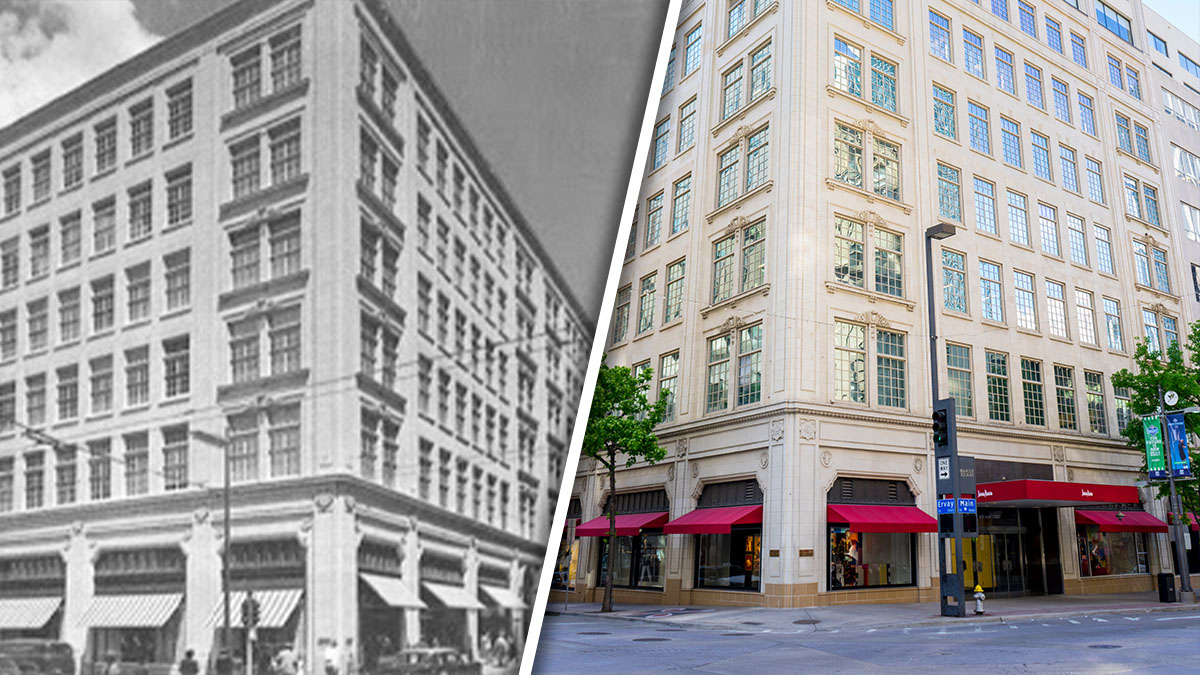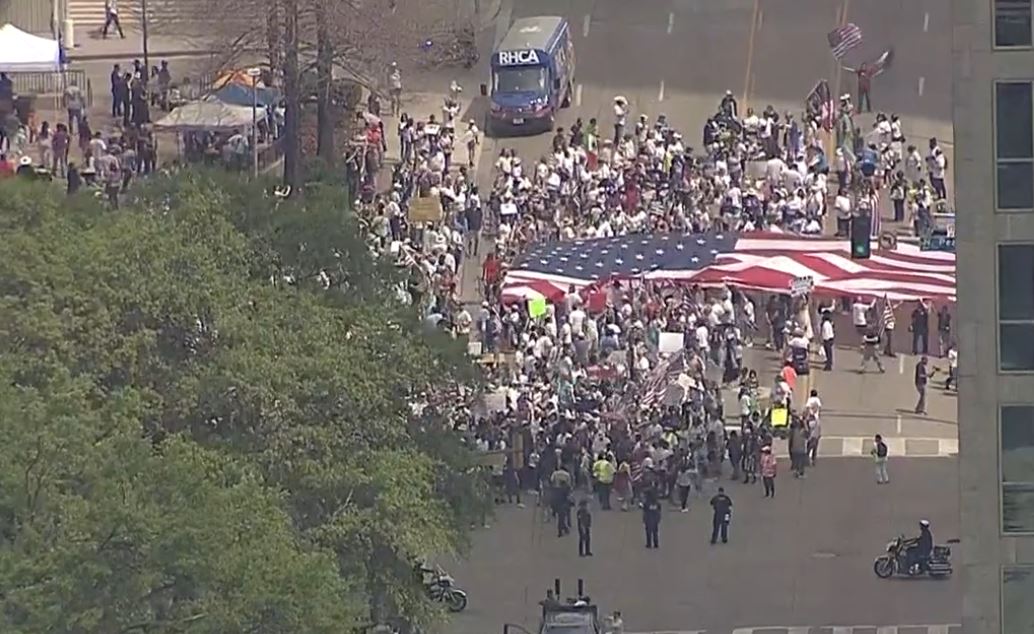Douglas Buchanan, a Baltimore-based composer, conductor, performer, and educator, knows the homeless community has a powerful voice. On January 20 at Moody Performance Hall in the Dallas Arts District, the Dallas Chamber Symphony and the Dallas Street Choir will debut “Crossroads” — a piece Buchanan wrote to amplify that voice.
Buchanan is the son of Dr. Bruce Buchanan, the recently retired executive director of The Stewpot, and grew up working with those experiencing homelessness.
One year ago, Buchanan founded Voices Rise: A Baltimore Choir of Hope, inspired by Jonathan Palant’s creation and direction of the Dallas Street Choir at The Stewpot.
When Richard McKay, the artistic director of Dallas Chamber Symphony and Buchanan’s classmate at the Peabody Conservatory, approached Buchanan about an eighteen-month residency with an opportunity to create a piece for and about Dallas’ homeless community, Buchanan responded with enthusiasm.
“I think working with communities like the Dallas Street Choir and Voices Rise allows artists to realize that the small actions they make within a community can ripple outwards,” Buchanan said. “I think it helps to complete an empathetic suite for a musician.”
“Crossroads” is an homage to Dallas, The Stewpot as well as his parent’s work with the homeless community over the past three decades. Buchanan includes musical motifs referencing the Dallas Street Choir, Dallas Chamber Symphony, The Stewpot and his father.
Local
The latest news from around North Texas.
Following the choir’s performance at Carnegie Hall this past summer, Palant is introducing another musical challenge to the Dallas Street Choir: singing an original piece with a hometown orchestra. “I think what makes this work special was the personal connection to it,” Palant said.
In three movements, Buchanan evokes the experience of homelessness, inspired by poetry.
“I knew I wanted to have a movement that represented in some way the streets of Dallas. Certainly, there could be something majestic about it, but I felt that there needed to be something that had some harshness or bite to it because I wanted to create an experience in the piece where you moved from something that was dense and a little biting to something much more accepting and open-armed musically,” Buchanan said.
The bluesy second movement incorporates Dallas’ musical history across the street from The Stewpot. Legendary blues player Robert Johnson recorded 13 songs at 508 Park Avenue on June 19 and 20, 1937. By conjuring up that potent history, Buchanan taps into the homeless community’s appreciation for blues music.
The third movement is titled “Inasmuch” — a reference to the scripture from the Book of Matthew his father uses in sermons about community ministries.
“Some of my music end up being like a stewpot where you have all of these diverse elements that are coming together and are sort of brewed together. They may not seem to fit together at first, but it’s this idea of having different styles that are coming together and these different outlooks that move toward unity, acceptance and love,” Buchanan said.
Buchanan’s residency with the Dallas Chamber Symphony includes working with emerging local composers and engaging with the public in exploring music making and listening. The Dallas Street Choir has been able to learn more about the creation of music through the commissioning of this piece.
“I think what they’ve learned about music making is process, of seeing and meeting a real-live composer. Having the opportunity to submit poetry, give it time and see that poetry returned set to music is a really neat experience,” Palant said.

Complementing the music of the concert is an installation of artist and Southern Methodist University professor Willie Baronet’s We Are All Homeless. Since 1993, Baronet has been purchasing signs from homeless people. “It really was my weird way with dealing with my own discomfort with the homeless,” Baronet said. “It was my way to engage.”
Baronet approaches someone with a sign with a simple question. “Hey, can I buy your sign?” Baronet explained. “A lot of times, they are curious. When they hear it is for an art project, they are excited.” He purchases the signs indiscriminately, allowing the seller to suggest a purchase price. He typically buys signs for $10 to $20. His collection now consists of over 1,400.
In 2014, he embarked on a 31-day cross-country trip to purchase signs in 24 cities. After interviewing over 100 people during his journey for the documentary Signs of Humanity, he has learned to value humanity in all its forms.
“I’ve learned how important it is to the homeless to be seen and heard and just how hard it is to be on the streets hours on end. It has taught me to be grateful for all the things I’ve taken for granted,” Baronet said.
He hopes his art will connect with the public. “It all starts with awareness. That’s why I’ve become passionate about this project. It helps them engage in a conversation they might not otherwise have,” Baronet said.
Palant wants people to recognize the value of the homeless community. “Any opportunity that the Dallas Street Choir has to engage a new audience demonstrates the good this community has within it,” Palant said. “With our voices, we are building bridges between communities. We are demonstrating our motto which is ‘homeless, not voiceless’. We are showing the broader community that while our members are experiencing homelessness, they are still active members of society.”
“Crossroads: Exploring the Sounds Between” is a free community concert.



